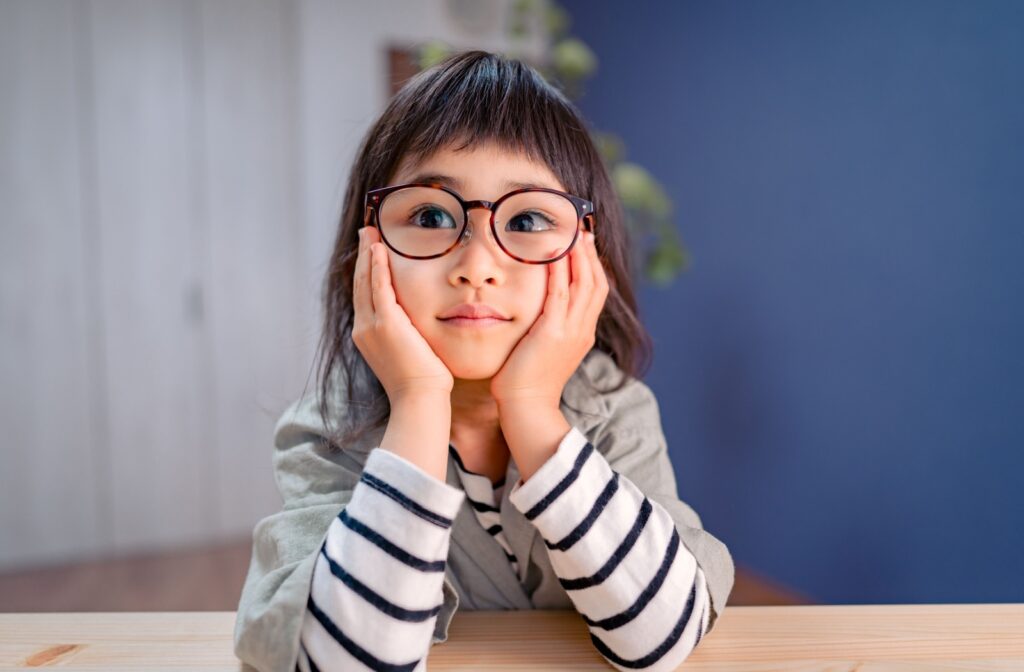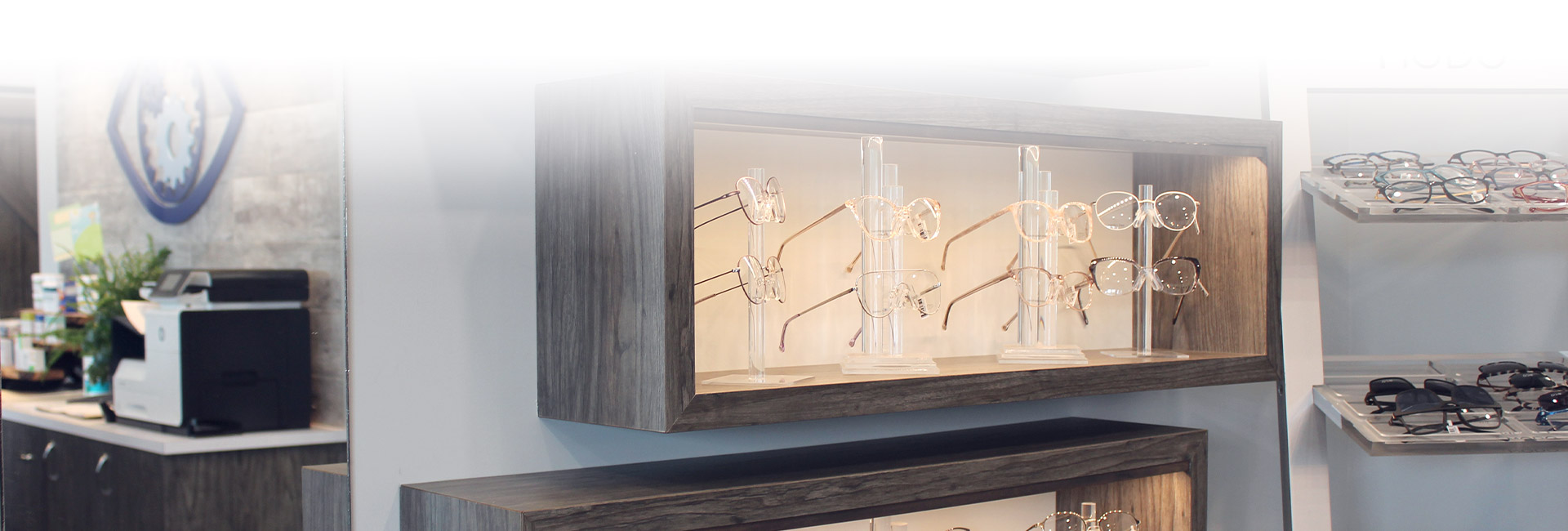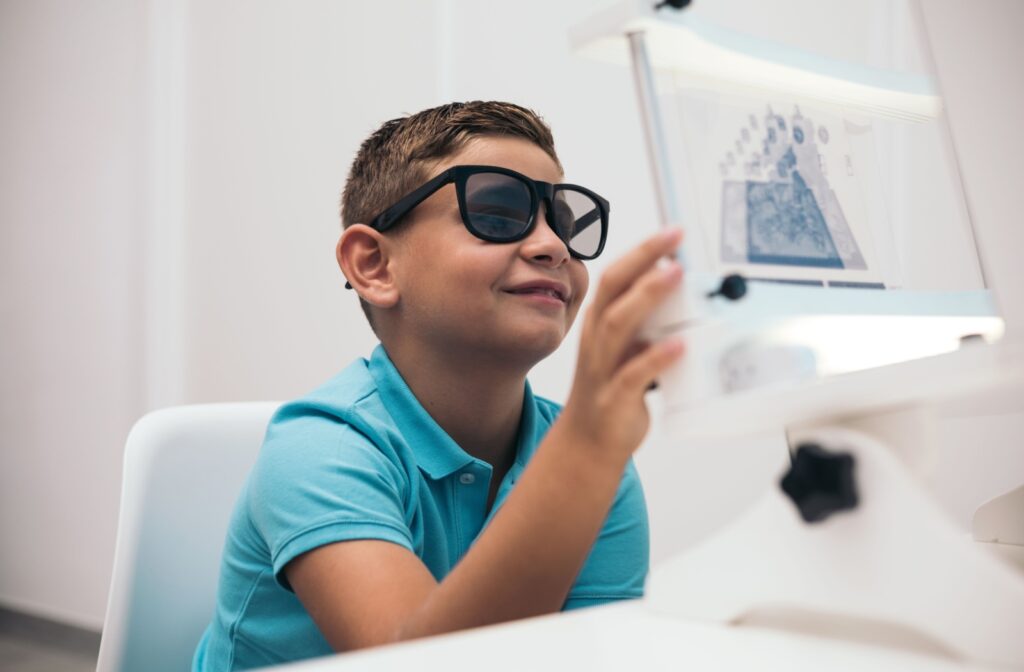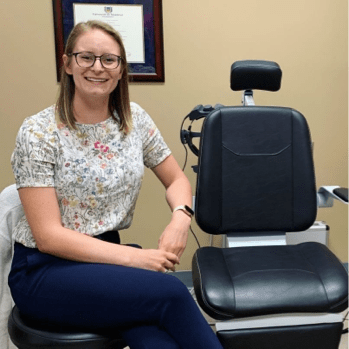Children rely on a wide range of visual skills every day in order to read, write, focus, and absorb information. When these skills aren’t developing properly, classroom performance and overall confidence can both suffer.
Vision therapy helps children learn by improving how the eyes and brain work together. This allows for the treatment of issues like visual processing disorder and strabismus and amblyopia, which affect how the eyes function as a team.
What Is Vision Therapy?
Vision therapy is a structured program of in-office exercises that helps improve how the eyes and brain work together. While glasses and contact lenses correct refractive errors like myopia (nearsightedness) or astigmatism, vision therapy targets the neurological control of visual function.
Vision therapy aims to retrain the brain to better process and respond to visual information.
Signs Your Child May Need Help with Their Vision
Some visual problems aren’t obvious. A child may pass a vision screening, yet still struggle with the visual skills needed for learning. Watch for signs like:
- Holding reading material very close
- Losing their place while reading
- Avoiding close-up work or reading
- Complaints of headaches or tired eyes
- Difficulty concentrating in class
- Reversing letters and/or numbers
These symptoms could indicate challenges with how your child’s eyes work together, focus, or process what they see. Left unaddressed, these issues can make it harder for children to understand written material, stay focused, and fully participate in learning.
When Vision Issues Are Misdiagnosed
Children with undiagnosed vision issues may be incorrectly assessed as having attention deficits or learning disabilities, such as ADHD. Vision-related challenges can often resemble behavioural concerns, but may actually stem from how a child’s eyes work together and process information.
A standard vision screening often only checks how clearly a child can see at a distance, but doesn’t assess how their eyes move, focus, or work together. This means that certain vision problems may go undiagnosed, leaving children without the help they need.
Comprehensive eye exams that evaluate visual skills can help differentiate between learning challenges and problems with vision. Identifying these issues early can help children get the right support.
Complex Visual Conditions
Some children may also have more complex visual conditions that interfere with learning and everyday tasks. In such cases, vision therapy can help train the brain to improve eye coordination and alignment.

Amblyopia
Amblyopia, often known as “lazy eye,” occurs when one eye doesn’t see as well as the other. This is usually due to an issue with normal vision development. Even with corrective lenses, the weaker eye may not see clearly.
Children with amblyopia may struggle with:
- Depth perception
- Hand-eye coordination
- Confidence during sports or reading tasks
- Reading fluidity
Strabismus
Strabismus occurs when one eye isn’t pointed in the same direction as the other. It’s caused by the brain’s inability to use both eyes together in perfect alignment.
Strabismus can lead to:
- Eye strain or discomfort
- Double vision or difficulty tracking lines of text
- Challenges with visual attention and reading
- Poor depth perception
Benefits of Vision Therapy
Vision therapy is non-surgical and tailored to your child’s vision needs. It offers a structured way to build essential visual skills under the guidance of a trained optometrist.
Benefits may include:
- Improved visual comfort
- Enhanced tracking and eye coordination
- Support with sports and classroom activities
- A more positive attitude toward learning
Each child’s program is designed based on a detailed visual assessment, with goals tracked over time.
Additional Benefits of Vision Therapy
Beyond academics, vision therapy may help with tasks like copying from the board, participating in physical activities, or completing art projects. Improvements in visual coordination can contribute to increased independence and self-confidence.
How Vision Therapy Can Support Academic Performance
When visual skills improve, children may find it easier to keep up with reading and writing tasks. Improved eye tracking can help them follow lines of text, while better eye teaming may make it easier to shift focus between the board and their notebook. These gains in visual function can directly support comprehension, accuracy, and engagement with schoolwork.
Some of the academic areas that may benefit include:
- Reading stamina and comprehension
- Written work and focus during assignments
- Attention in class or during homework
- Quicker copying from the board
These changes can help children feel more capable and confident, reducing frustration and making learning a more positive experience overall.
Nurturing Your Child’s Potential
If your child is having difficulty with reading, concentration, or academic performance, this could be due to an underlying visual issue. A comprehensive eye exam, including tests of visual function, can help determine whether vision therapy is appropriate.
Beyond 20/20 Optometry works closely with families to develop personalized vision therapy plans aimed at improving visual function and supporting learning. Our warm, family-friendly approach focuses on empowering children with tools designed to enhance their academic experience and everyday life. Book an appointment today to learn how vision therapy can support your child’s success, in and out of the classroom.




